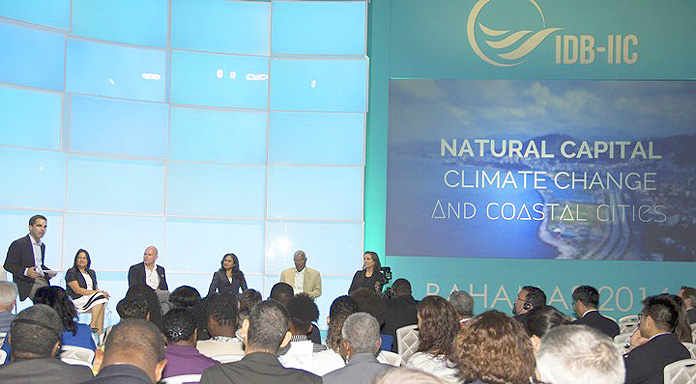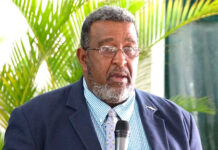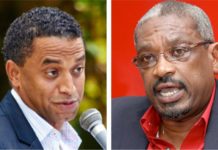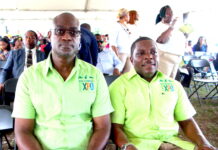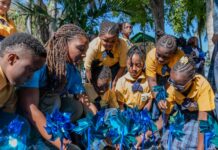The Bahamas Placing Natural Defences Against Climate Change Effects
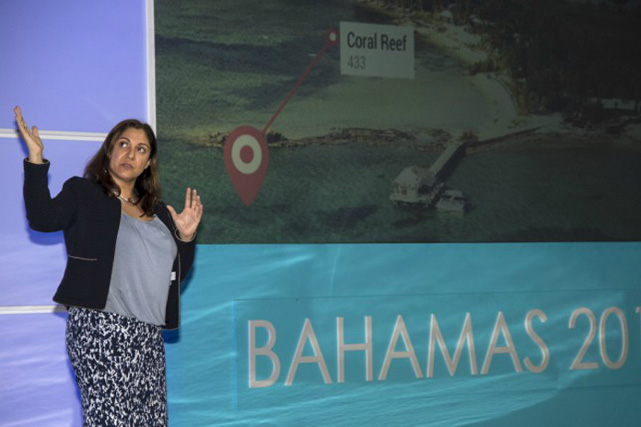
NASSAU, The Bahamas – The Bahamas has placed natural capital, ecosystem-based, strategy at the center of its new development plans.
Supporting this stance is Amal-lee Amin, Division Chief, Climate Change and Sustainability Division, IDB, one of two presenters on Natural Capital, Climate Change and the Future of Coastal Cities at the IDB and Inter-American Investment Corporation (IIC) meeting April 8, 2016.
She cited the Natural Capital Project, an 18-month Inter-American Development Bank (IDB) sponsored ecosystem-based plan for Andros, the country’s largest family island.
“According to NASA,” she said, “global sea levels could rise by 1 meter before the end of the century. In this country, The Bahamas, 80 percent of landmass is below 1 metre, which makes it highly vulnerable.
“No beaches, no tourism, no conferences. We need to be prepared, because it won’t be cheap. By 2050, the impacts of climate change could cost as much as $100 billion a year for Latin America and the Caribbean. That’s as much as 2.4% of current GDP. For The Bahamas that could be as much as $200 million dollars a year.
“But taking action now can avoid much of the damage. And the good news is that solutions already exist in nature,” said Ms. Amin.
She explained that through the Andros project, the Government brought local communities and businesses together with experts to identify the goods and services nature provides.
“These ecosystem services were then mapped out across the island and then used to construct future development scenarios. These allowed locals to understand how choices made now could impact on their future.”
Ms. Amin also spoke of the country’s protection of mangroves for spiny lobsters in order to conserve the highly profitable spiny lobster industry.
The Bahamas’ spiny lobster industry generates $65 million a year in exports.
“Without protecting the mangroves, rising temperatures could lead to destruction of their breeding ground. This could seriously reduce jobs and cut income by 10 million US dollars per year,” Ms. Admin added.
“These are just some examples of how we are learning to fight climate change. We are learning the true value of nature. We are learning that natural solutions not only protect the environment but they reduce costs and improve lives. That’s why natural capital is the first line of defense against climate change.”
The 57th annual meeting of the Board of Governors of the IDB and IIC is being held from April 7 to 10 in Nassau, Bahamas. More than 5,000 public and private sector delegates representing IDB member countries are participating in the meetings.
This seminar was one of a series of seminars on topics of interest to participants prior to the opening of the meeting.
Seminar Description: The Caribbean and Latin America are highly vulnerable to the adverse impacts of climate change, with three out of four residents living in coastal areas. However, a few countries are using innovative policies and strategic investments to increase resilience and improve livelihoods. This panel will explore new ways the region is defending the coast from the effects of climate change and urban development. In a region that is urbanizing quickly, how do we stabilize shorelines, reduce flooding, improve public access and protect the resilience of coastal and marine ecosystems? More than ever, we need to balance investments in infrastructure with the protection of sensitive coastal resources, implementing what is being called a Blue Urban Agenda.
